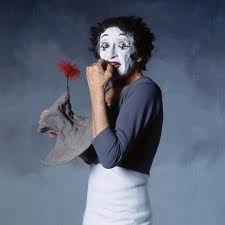“Here’s to the crazy ones. The misfits. The rebels. The troublemakers. The round pegs in the square holes. The ones who see things differently. They’re not fond of rules. And they have no respect for the status quo. You can quote them, disagree with them, glorify or vilify them. About the only thing you can’t do is ignore them. Because they change things. They push the human race forward. And while some may see them as the crazy ones, we see genius. Because the people who are crazy enough to think they can change the world are the ones who do.”
American Businessman/Inventor
1955 -
Can we change the world? Jobs thinks so and he has done so with the Apple computer, the MAC, the I-Pod, the I-Phone and the I-Pad. And yet he has not touched the human heart.
I think we can change the external world a lot easier than we can change the internal world. Steve Jobs, Thomas Edison and others like them have changed the way we communicate and interact, but they have not changed the people who communicate. We still have liars, thieves, rapists and murderers. We have greedy, mean and negative people. We still have people who are poor, hungry and jobless. Technology does not change the heart. The computer did not make us better people. The internet did not make us better people. Think about how many people run scams via the computer or hackers who steal people's information and identities.
Changing the human heart is an inside job. Only I can change myself. Only I can make me a better person. And even then I often fail. And some would say that only God can change the human heart. Yet, if you look at some of the religious leaders who commit adultery and you will realize that He too has failed. How many times have you tried to change old habits and failed? Our human nature is often a barrier to our success. People keep hoping the world will change and it does, just not always for the better.
So can we as creative leaders change the world? I don't think the answer can easily be found. We can change somethings but not all things. But we must keep trying. We cannot let failure stand in our way. Let us celebrate the rebels. the misfits and the troublemakers because they look at the world through rose-colored glasses. They see things that others do not see. They find hope where others give up and quit. So I celebrate hope amidst my failures. And I still choose to believe that I can change. Don't you?



























